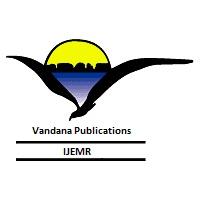Can Technological, Organizational and Individual Antecedents Together Optimize Knowledge Sharing for Establishing Institutional Innovation Capabilities?
8 (4):
186-192 (August 2018)DOI: 10.31033/ijemr.v8i4.13239
Abstract
Faculty members’ are the intellectual leader for developing societies. It is believed that the new knowledge is created and transferred to the people in the Universities. Although, relatively still an infancy field of research, studies in Knowledge Management (KM) and Knowledge Sharing (KS) continue to be on the boost. Knowledge Sharing and Innovation are also whispered to be interrelated and could influence organizational performance. Studies show that individual’s knowledge does not renovate simply into institutional knowledge even with the use of knowledge depository. Furthermore, it is also believed that Information and Communication Technology (ICT) can enhance knowledge sharing with the integration of individual behaviour and diverse organizational factors. As a comparatively new field of research, studies on knowledge sharing based on Information Systems (IS) in developed countries is also on the increase. Unfortunately, knowledge sharing research in the higher academic institutions in developing countries were mostly found to be given trivial considerations. Therefore, the aim of this study is to investigate whether the technological, organizational and individual factors together can help
increase Knowledge Sharing in HEIs and contribute it in augmenting organizational performance in developing countries. The methodology of this study was subjective/argumentative i.e., idea generation in Information Systems (IS). The findings of the study reveal that utilizing the technological, organizational and
individual antecedents together for organizational knowledge sharing can augment overall organizational performance. The study explored the antecedents that
increased innovation in organizations. These were the individual intention, attitude, self-efficacy for training and development, subjective norm, organizational trust, leadership, organizational rewards, organizational culture, social network, and use of ICT. It also reveals that KS could be increased in the organizations utilizing selecting
and initiating proper antecedents for practicing KS. We desire to extend this study to further an empirical investigation on the same issue to validate the research results.
